The Winter/Spring issue of Pathway 2 Family is out. The magazine’s target market isn’t people considering traditional adoption, but those considering embryo adoption*. The issue contains an article I wrote about the consequences of openness in adoption. Here’s an excerpt and a link to the issue (read for free).
Truth…or Consequences
Consequences – the word sounds so ominous. You don’t want to have to “face the consequences” or “pay the consequences” – especially if they are “dire consequences.”
But at its essence, con sequence (Old French with + to follow) simply means “outcome” – no judgment on a good or bad outcome. Consequences are the outcomes that naturally follow from an approach you take.
All parents want the best outcomes for their children. So what are the outcomes of openness for those involved in embryo adoption?
Let’s look first at the history of adoption. Why were adoptions, which had historically been open, closed from the post-war period of the mid-1940s until about the 1980s?
==> Finish reading at the source. ==>
The article is part of an educational thrust of Nightlight Christian Adoptions and the Embryo Adoption Awareness Center to make donors, recipients, and reproductive endocrinologists aware of the benefits of openness (truth) — and more importantly why it matters for the resulting baby/child/teen/adult.
To read the full article for FREE, visit Pathway2Family.org.
(* Some prefer the term embryo donation.)
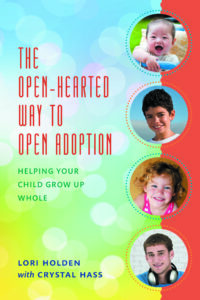
Lori Holden, mom of a young adult daughter and a young adult son, writes from Denver. She was honored as an Angel in Adoption® by the Congressional Coalition on Adoption Institute.
Her first book, The Open-Hearted Way to Open Adoption: Helping Your Child Grow Up Whole, makes a thoughtful anytime gift for the adoptive families in your life. Her second book, Standing Room Only: How to Be THAT Yoga Teacher is now available in paperback, and her third book, Adoption Unfiltered, is now available through your favorite bookseller!
Find Lori’s books on her Amazon Author page and catch episodes of Adoption: The Long View wherever you get your podcasts.

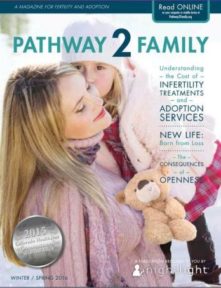
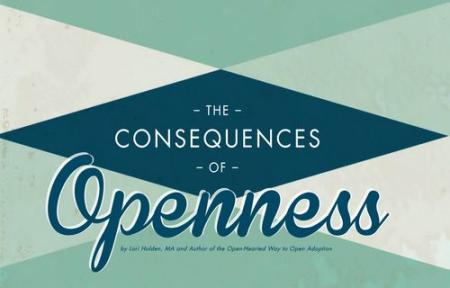
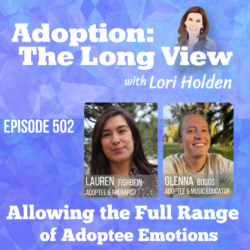
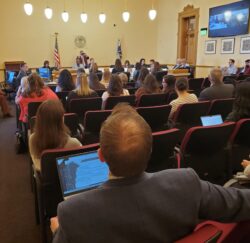
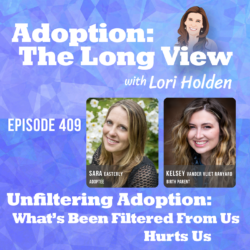

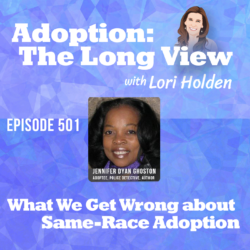

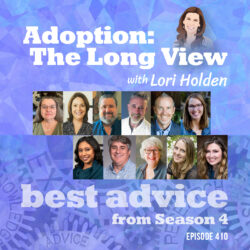
8 Responses
Given all the open discussions about open adoption, I was wondering when these would expand to other areas like embryo adoption. Maybe even donor egg/sperm too?
Anyway, I’m happy to see this being discussed. Though embryo adoption affords a couple the opportunity to carry a pregnancy, it also allows for the temptation to hide biological origins. It adds shame where it doesn’t need to be. And it especially sad as most couples who donate their embryos do so with love and the hope those embryos will be given a chance at life, even though they won’t be raising those potential children. Why exclude that source of love and support?
Thanks for the link. Lots of good reading.
Great article, Lori. I really like the idea of openness around all aspects of the adoption process. For those who want both biological and adoptive families in their lives, it shouldn’t take hire a private detective and spending tons of money to make it happen. I hope this transparency trend catches on.
Great article! I am very curious to hear the perspectives of those whose origins include embryo donation — not just the donors or the recipients. This is so fascinating to me, as we are navigating both processes — infant adoption and placing our own partially genetic embryos–at the same time, all within the spirit of openness. It’s going to be a beautiful, crazy ride, but one where everyone hopefully knows their origins and can ask the hard questions to all parties. We live in such interesting times!
Well written and very understandable! I like the openness concept/facts!
Definitely a complicated issue! I’m glad you’re exploring it and shedding some light on the importance of openness.
I do like the word consequences, though I’ll admit that people usually think of it as a negative thing. Thank you for taking something and making people see it in a whole new way.
Small, yet big point. You want updated family health history so your doctor can help prevent, or at least mitigate the impact – vs after the conditions develop access to medical records.
Thanks Lori…loved everything else you wrote…
Excellent point, TAO. I forgot to link to the sidebar chart, in which your point is referenced but not as explicitly.